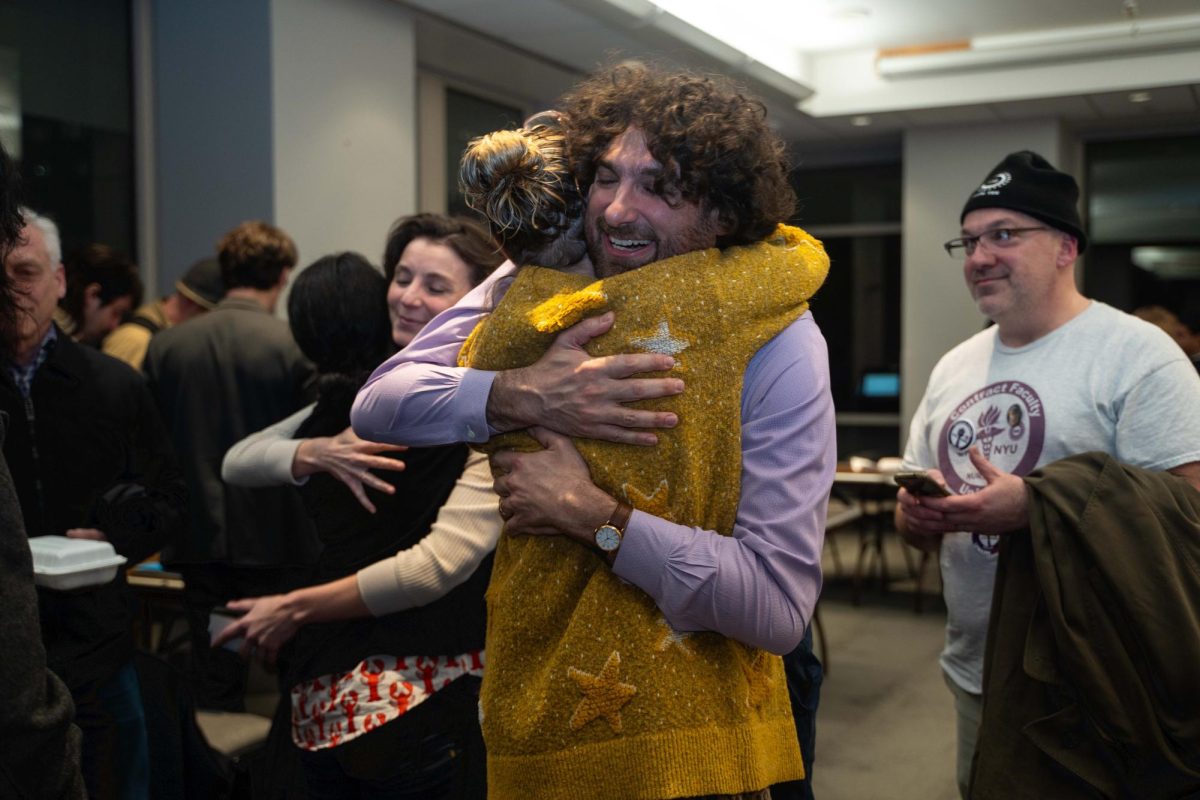NYU Contract Faculty United will begin negotiating with university administration this Friday to establish a contract codifying 13 demands. The demands, based on input from hundreds of faculty members over the past several months, include improved benefits and salaries, expanded academic freedom and guaranteed job security.
The 11 members of CFU-UAW’s bargaining team and several representatives from UAW, the union’s parent organization, will meet with NYU’s lawyers and administrators Friday afternoon. At the meeting, attendees will begin drafting a contract between the union and the university, specifying conditions under which CFU-UAW’s 13 demands will be implemented.
The complete negotiation process took more than a year for NYU’s Graduate Student Organizing Committee, and often takes longer for larger unions. Elisabeth Fay, a member of CFU-UAW’s organizing committee, said that as one of the largest unions within a U.S. private university — representing 930 faculty members — CFU-UAW’s bargaining could be slowed by lack of precedent.
“Both us and the NYU administration will be figuring out how to approach this, because there aren’t a lot of other good examples,” Fay said in an interview with WSN. “I think this is going to be a long process, but we’re excited to find different ways to make sure all of us can get involved.”
The bargaining comes eight months after a 553-72 vote to approve the union’s official recognition on campus — making it the largest on-campus union for full-time, untenured professors at any private U.S. university. Following the approval, the union spent months forming its bargaining committee and establishing demands by surveying faculty, hosting group Zoom meetings and submitting the finalized list to union members for approval.
Several of the demands pertain to improving the work environment at NYU — such as increased job security, more opportunities for paid professional leave and limits on how many classes professors can teach at once. Other demands call for better healthcare and retirement benefits, as well as salaries adjusted to the current cost of living. The group is also requesting better support for international professors, improved on-campus childcare programs and protections for academic freedom.
“NYU’s aim is to achieve a fair agreement that honors the contributions that our contract faculty make to the University,” NYU spokesperson John Beckman said. “We look forward to the start of negotiations at the bargaining table.”
In an interview with WSN, Richard Dorritie, a member of the bargaining committee, said he became part of the union after finding salary discrepancies between him and his co-workers that didn’t align with their respective experiences. He added that he had seen his workload double during his tenure at the university, reiterating the need for more rules protecting contract faculty.
“What I know in my heart is that my working environment here is every student’s learning environment,” Dorritie said. “I don’t know how we can be the world-class university that draws amazing faculty, draws amazing students, when they’re buried under this landslide of workload.”
Union members also said that some of the demands had taken a new meaning after an uptick in on-campus protests over the past several months. Fay mentioned that several members wanted further clarification of how updated student conduct guidelines could inform their own teaching methods, and Jacob Remes, another committee member, said union protections can support faculty facing disciplinary action or dismissal.
Remes added the heavy union presence on NYU’s campus has helped cultivate an effective relationship between CFU-UAW and the university. He said the union often communicated with GSOC about how to approach universitywide issues, and that they worked closely with Student Workers at NYU to organize its recognition last semester.
Discussions about unionizing among contract faculty began in 2017, and the group began signing union cards in 2019. They officially formed the union in 2020 and in 2022, launched their public campaign. In January, CFU-UAW signed an agreement with the university to begin negotiations in the event of a majority contract faculty vote, which eventually took place Feb. 29.
NYU’s graduate student workers began organizing in 1998 and reached their official agreement with the university in 2013, demanding compensation, benefits and other requirements for their work. This September, RAs voted to unionize and now plan to bargain with the university about issues including compensation standardization and job responsibility transparency.
Nationally, about 27% of faculty belong to unions, growing by 7.5% since 2012. Seventy percent of all professors in New York are union members, and 83.4% of new faculty unions contain non- tenure-track faculty. New York has the second-highest number of unionized faculty nationwide.
“NYU is a university that isn’t high-bound, it isn’t stuck in tradition — it tries new things, and I am hopeful,” Remes said. “I think the administration might be surprised by how united our faculty are — across schools, across disciplines, across salaries — people are fighting for what we have in common.”
Update, Oct. 30: This article has been updated with a statement from a university spokesperson.
Contact Dharma Niles at [email protected].

























































































































































